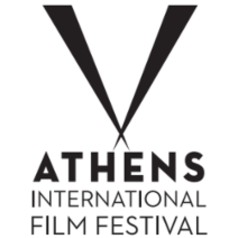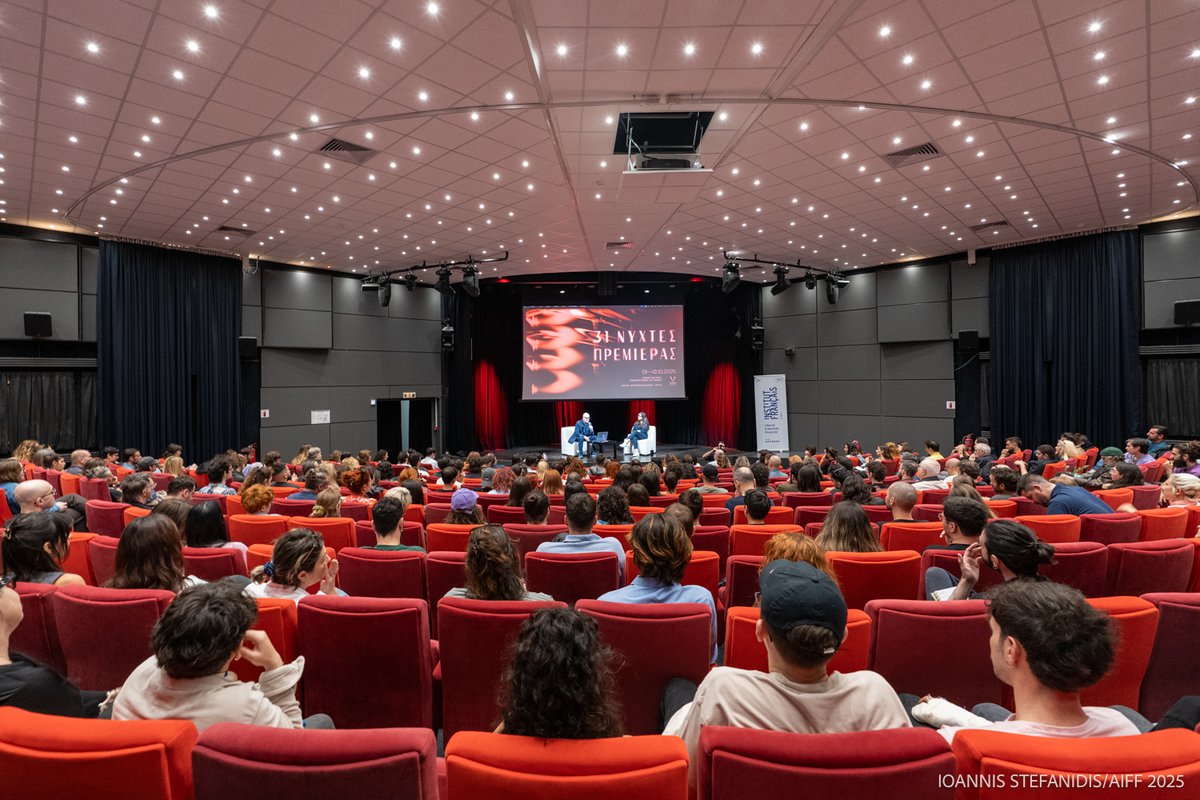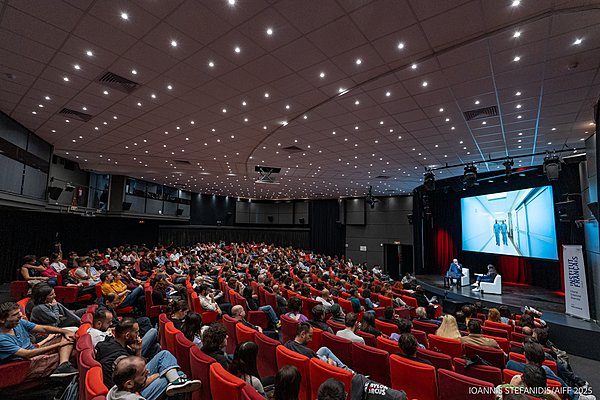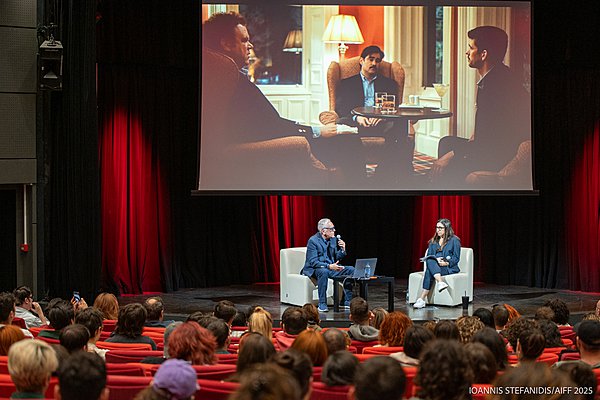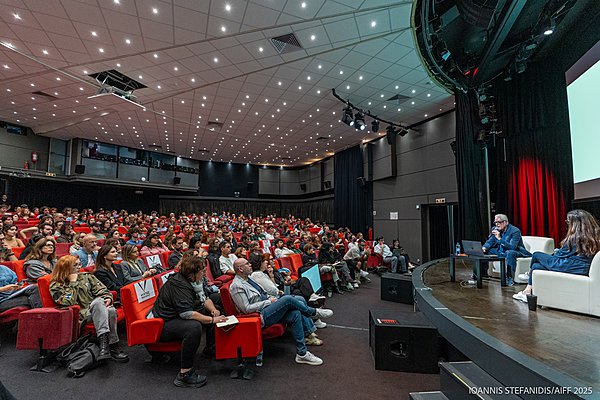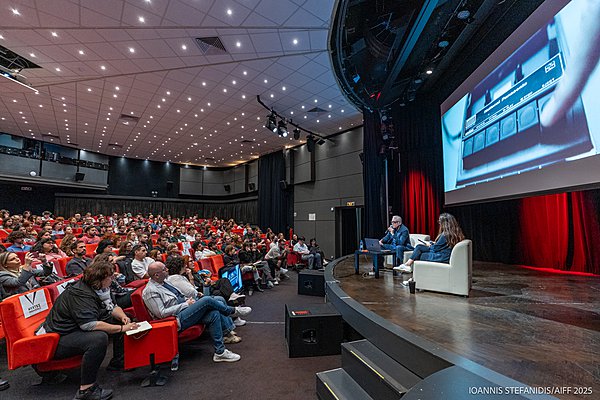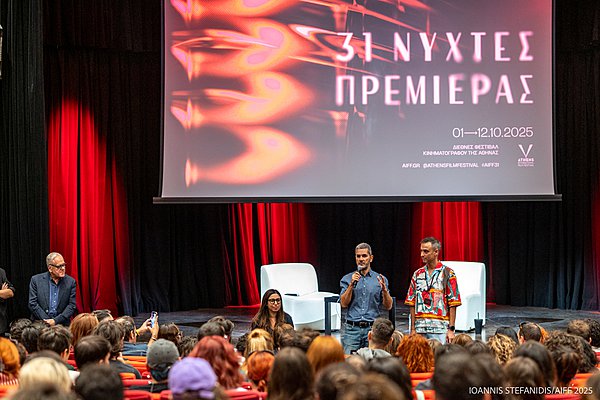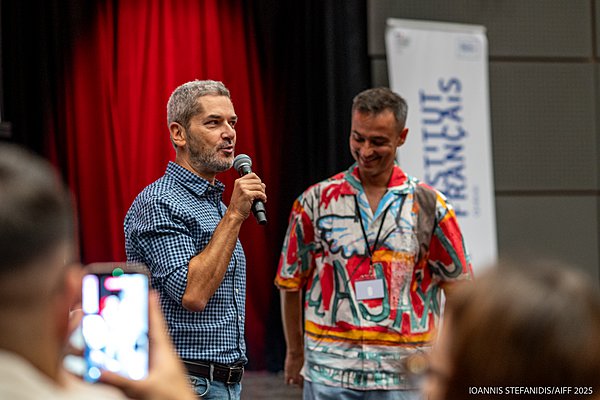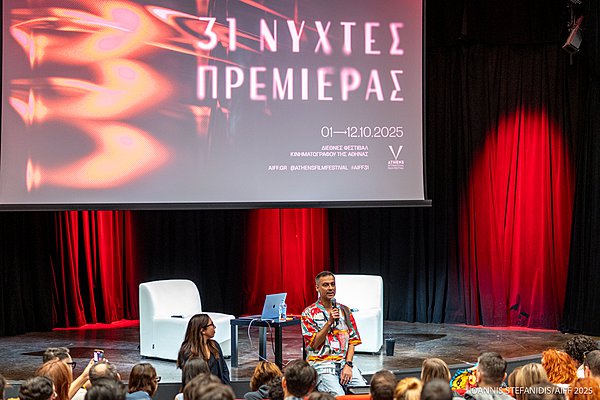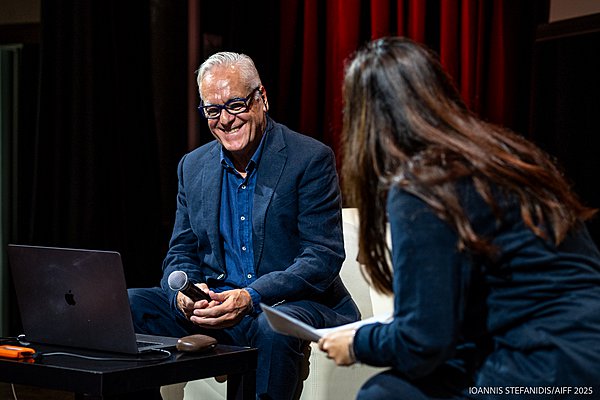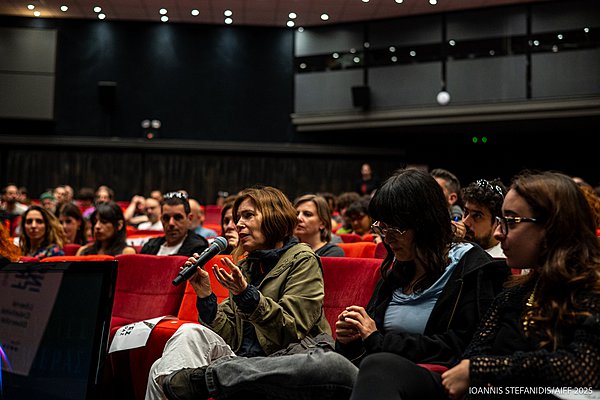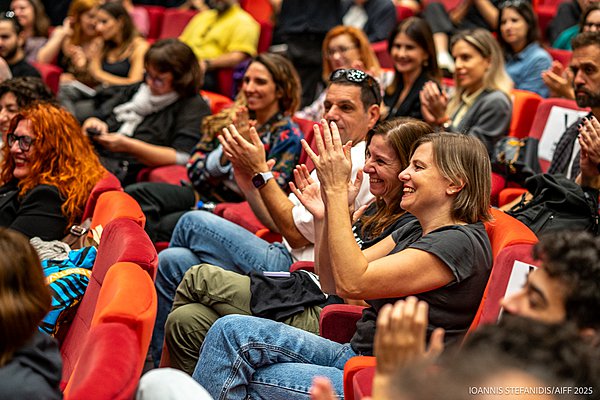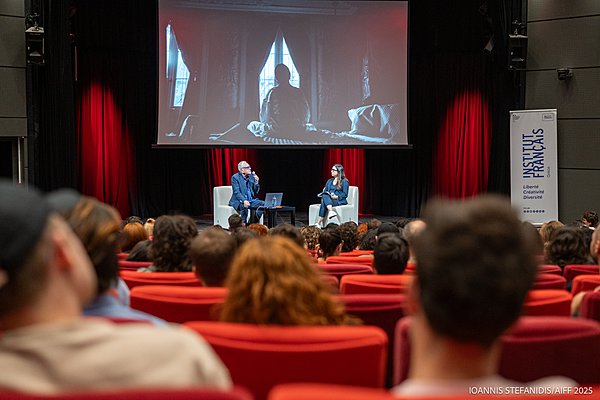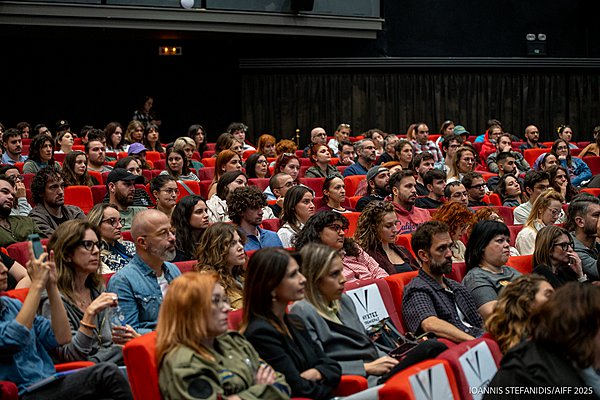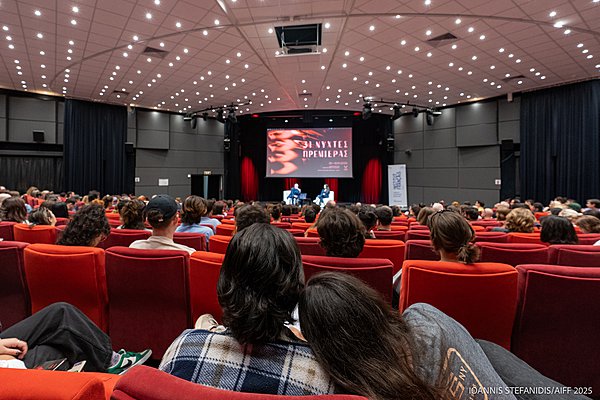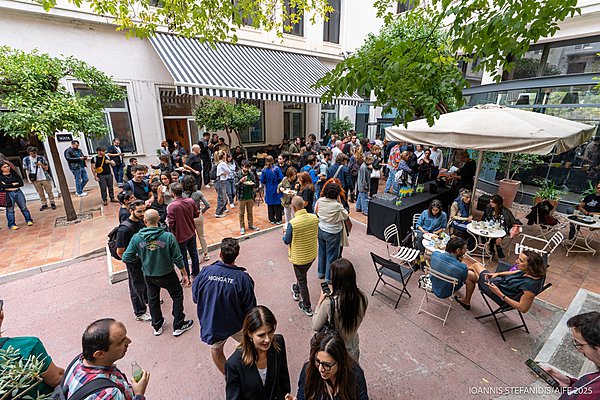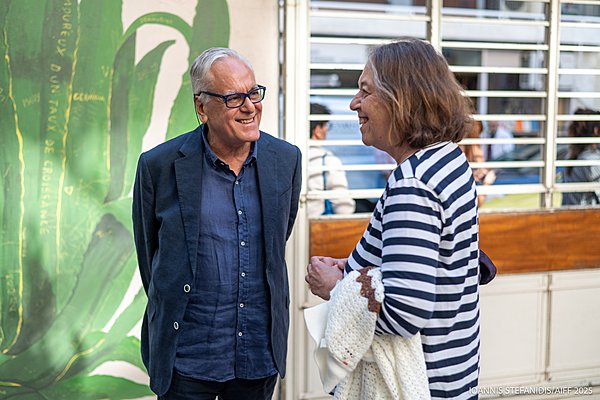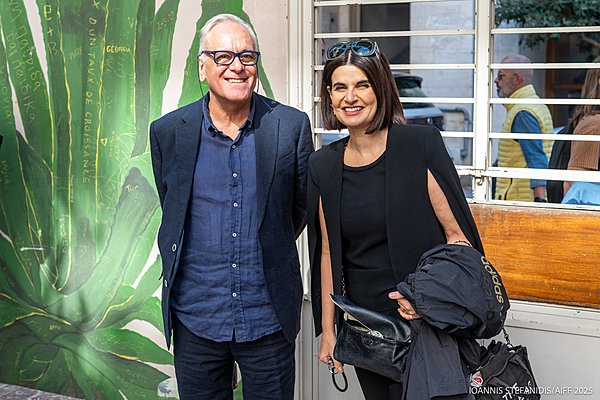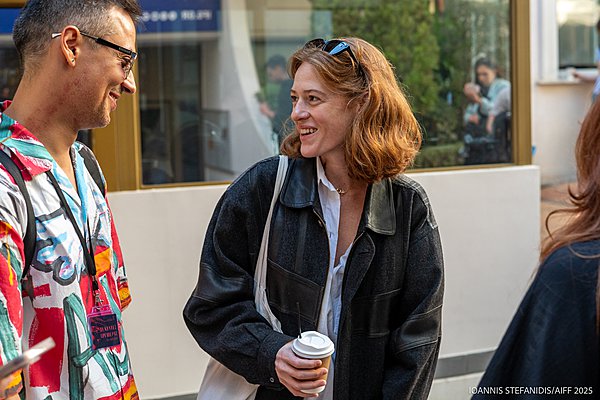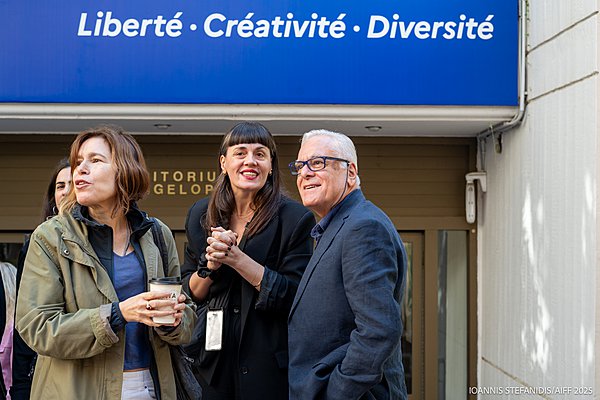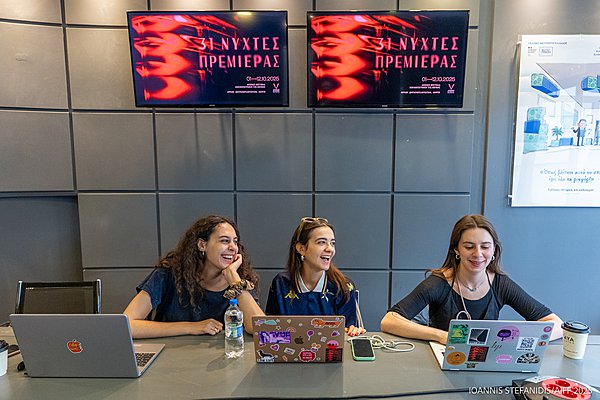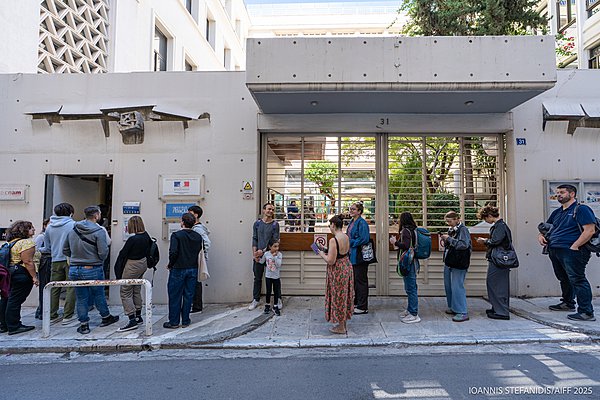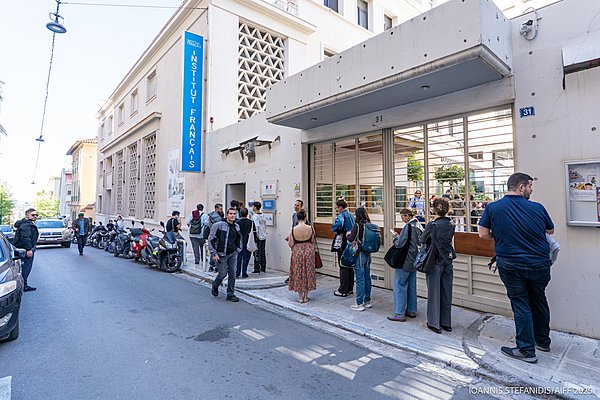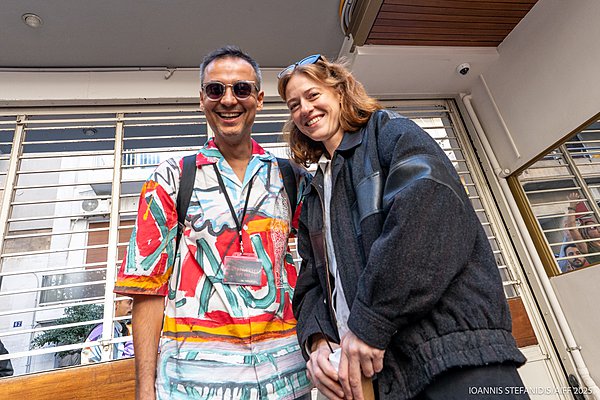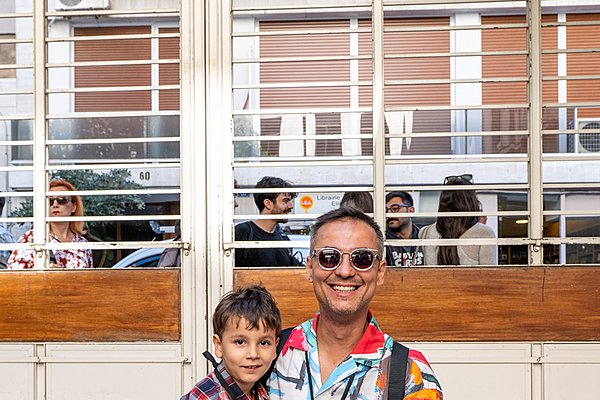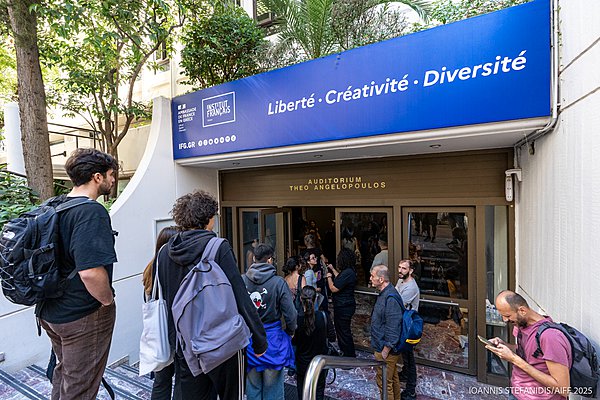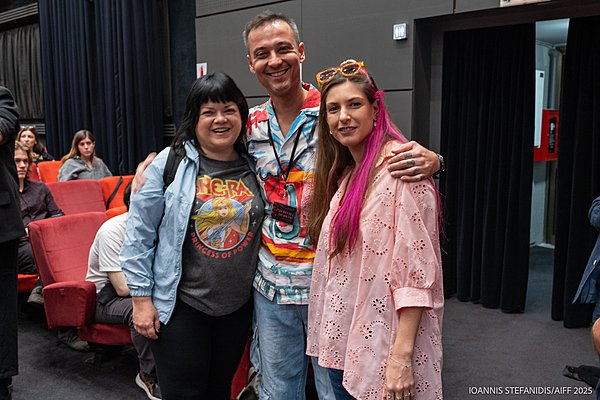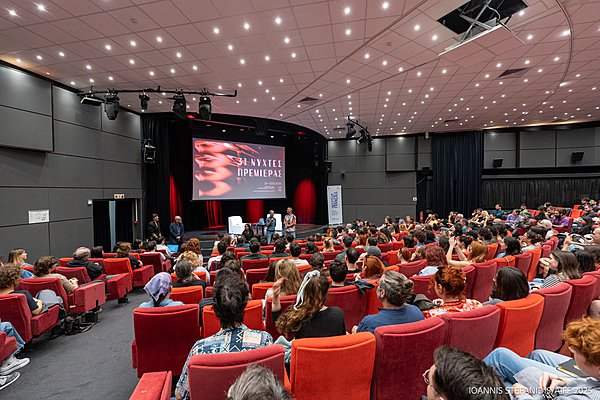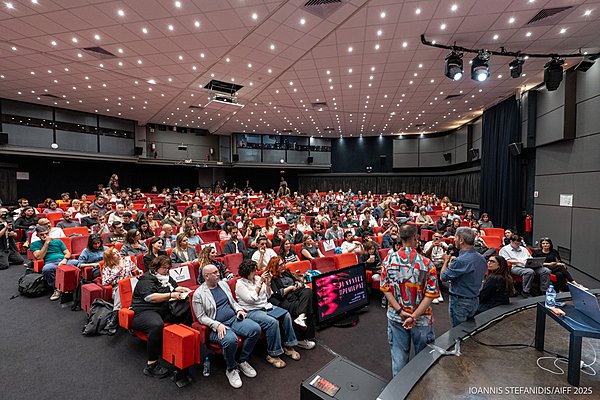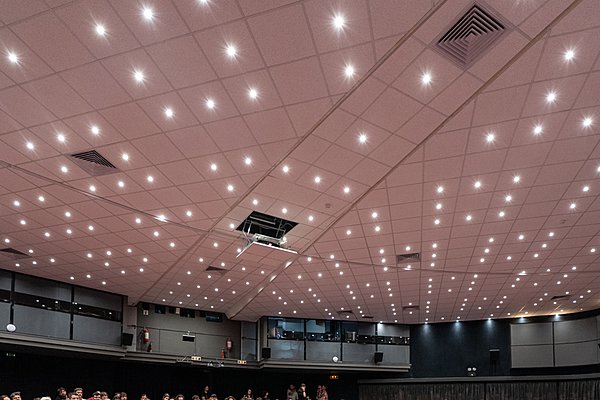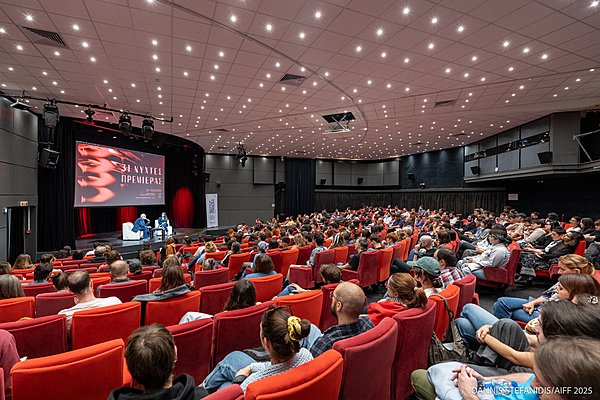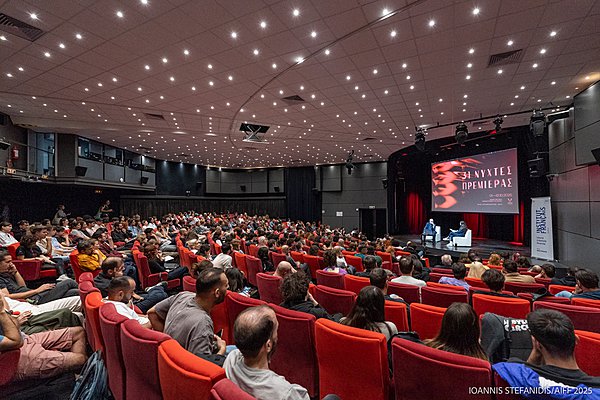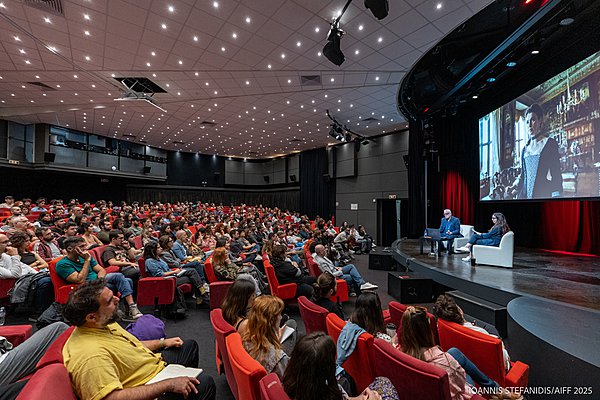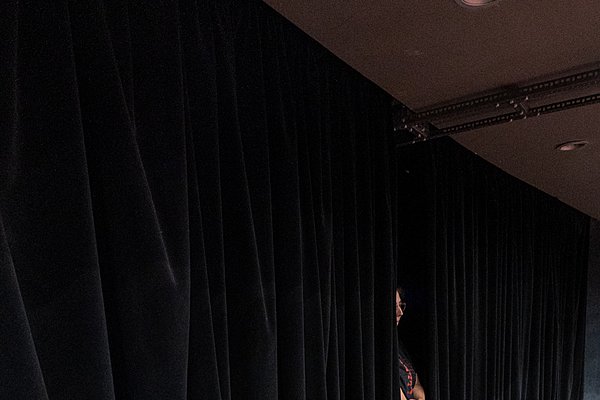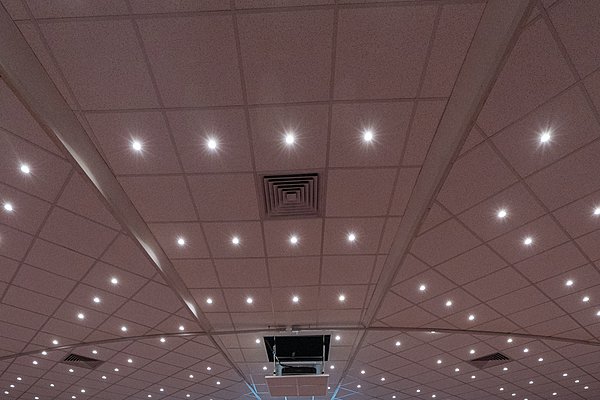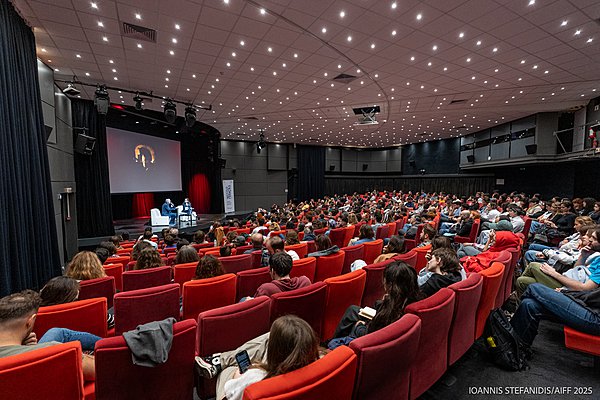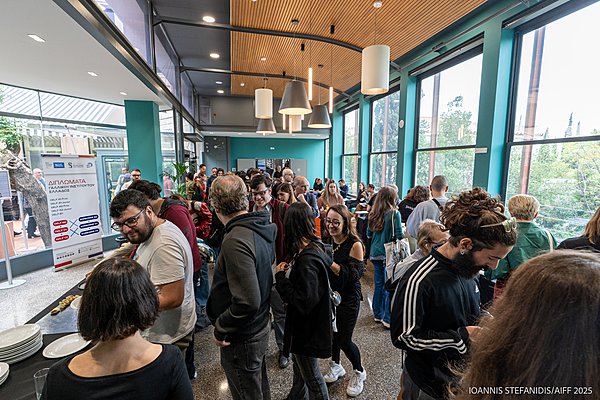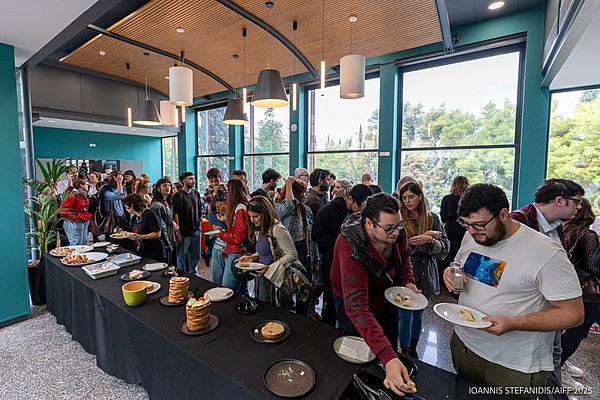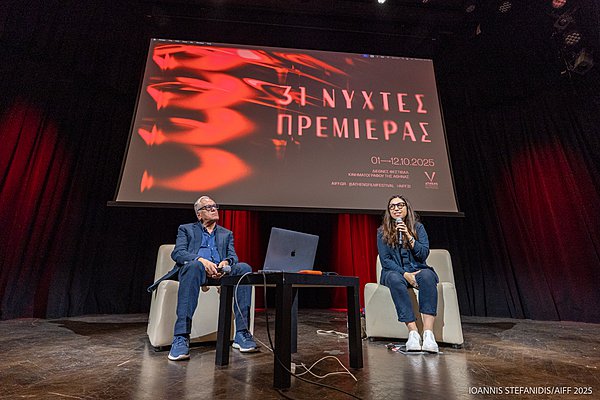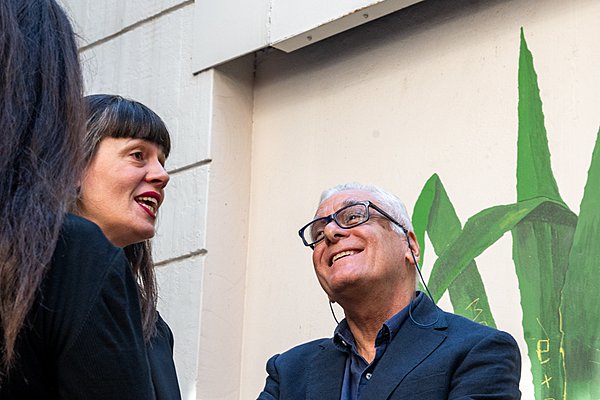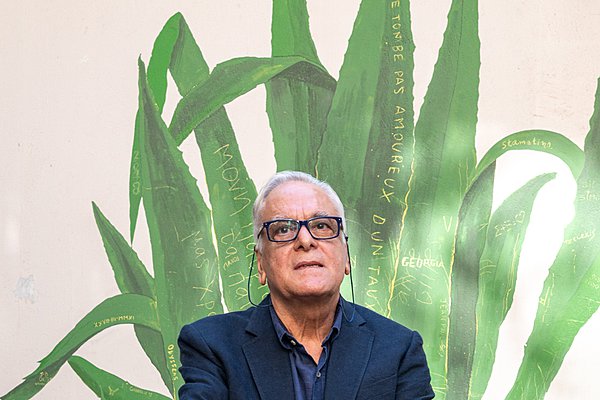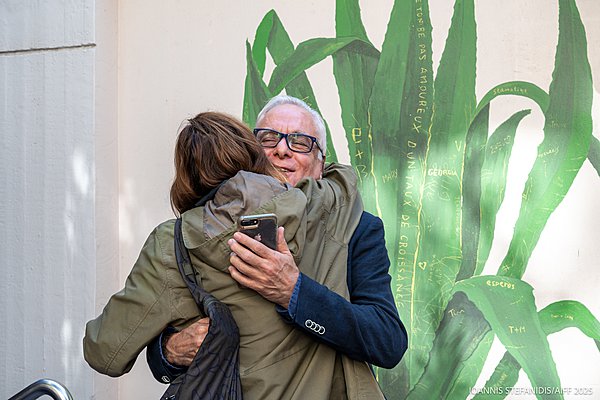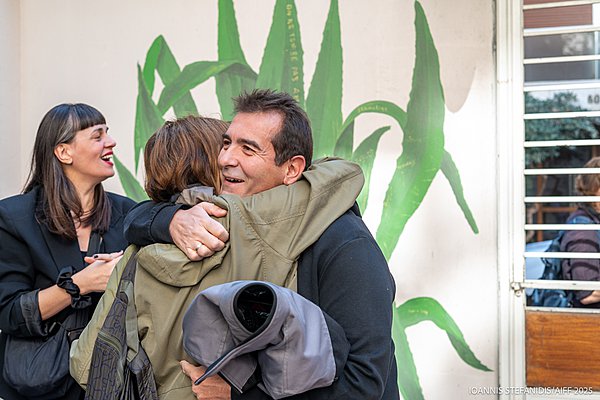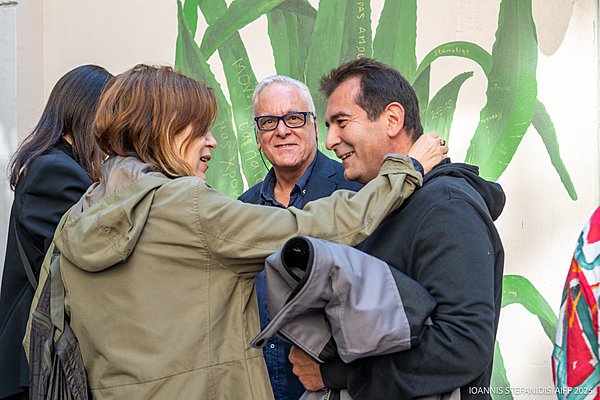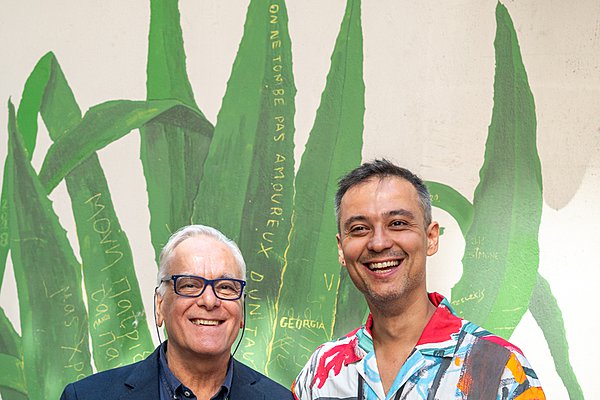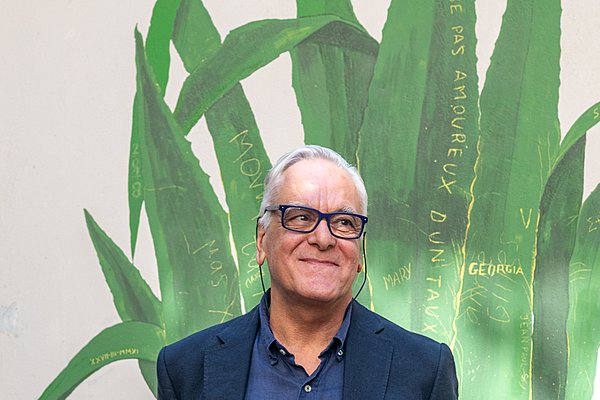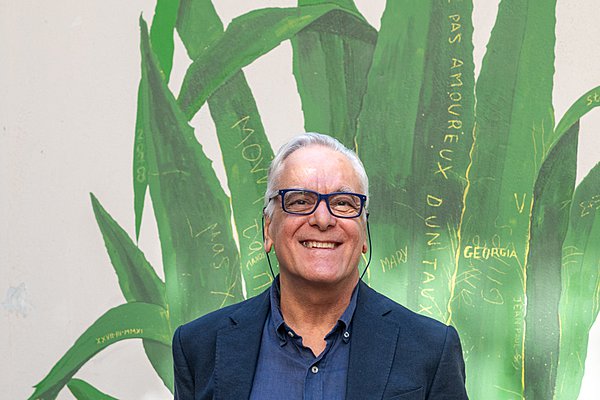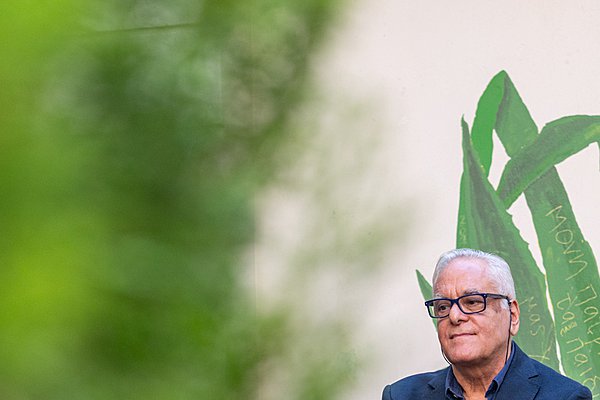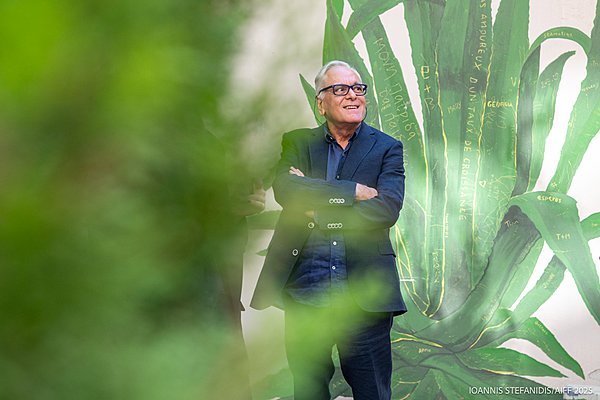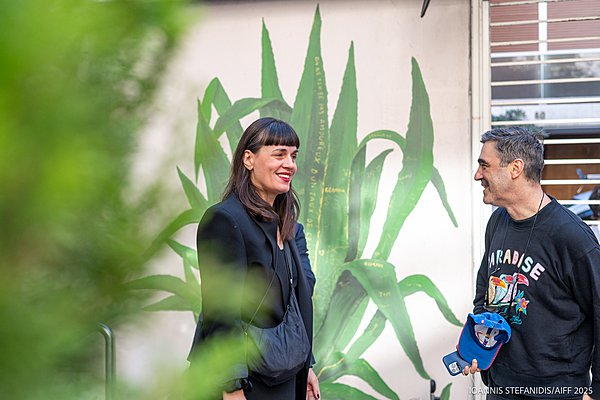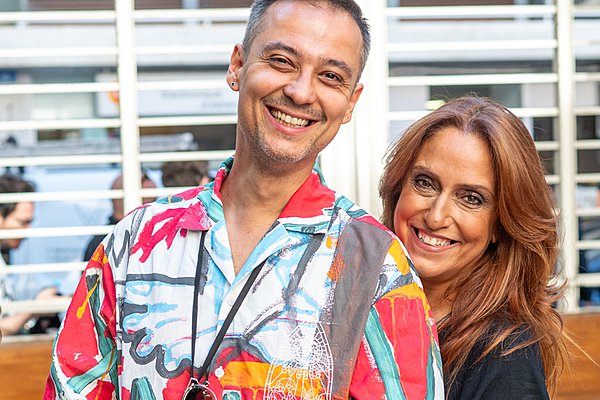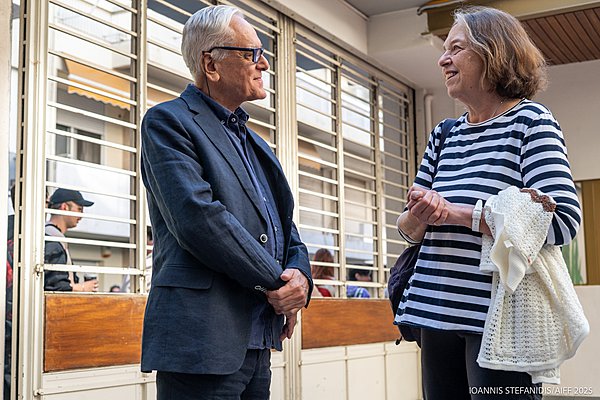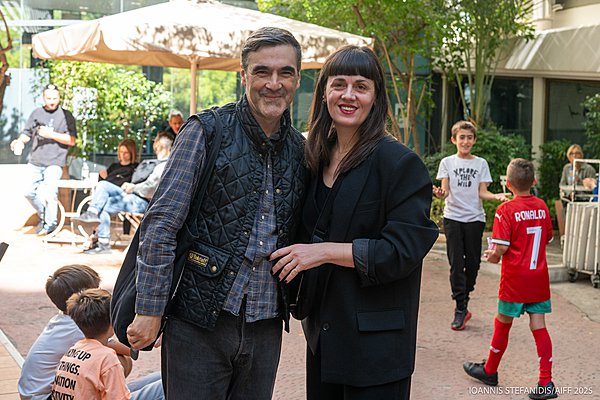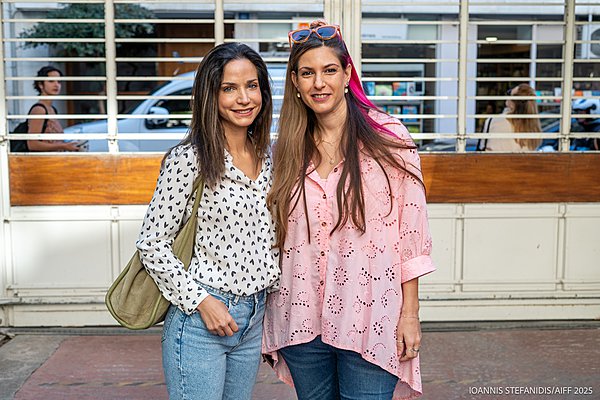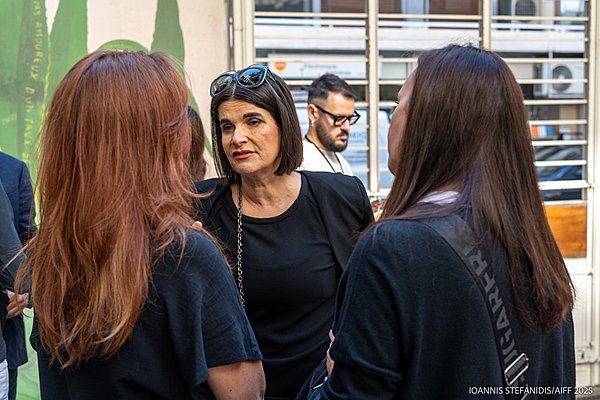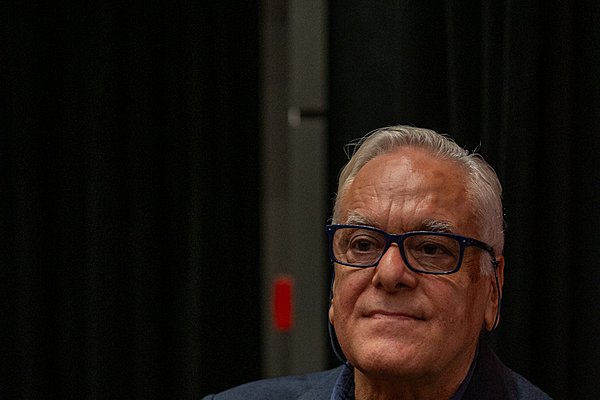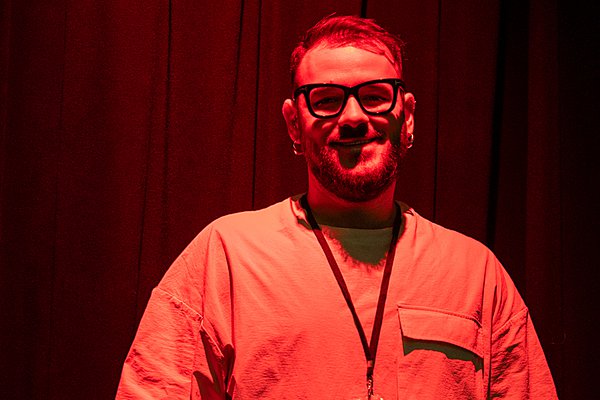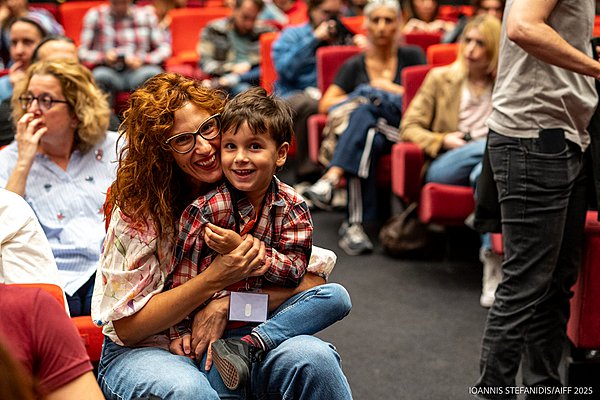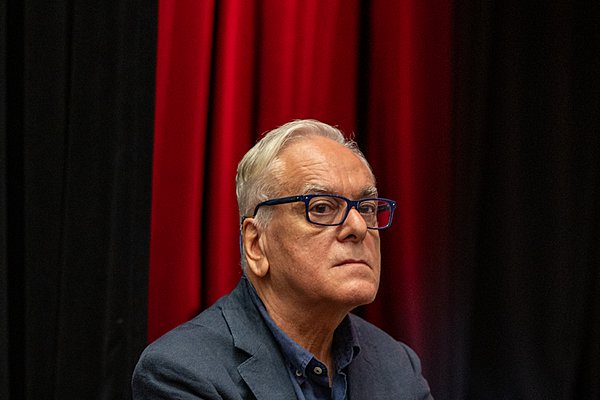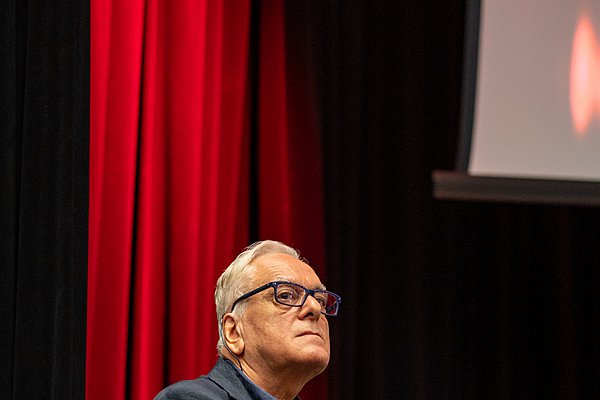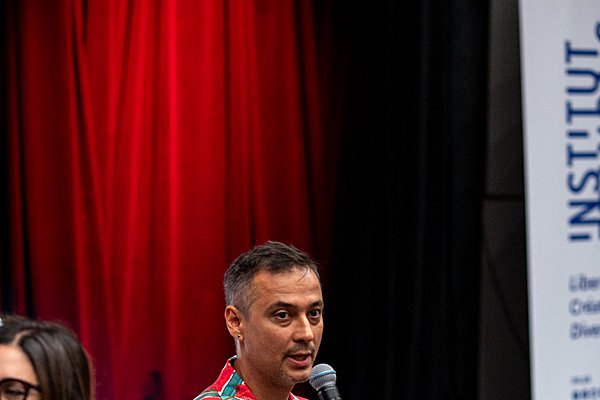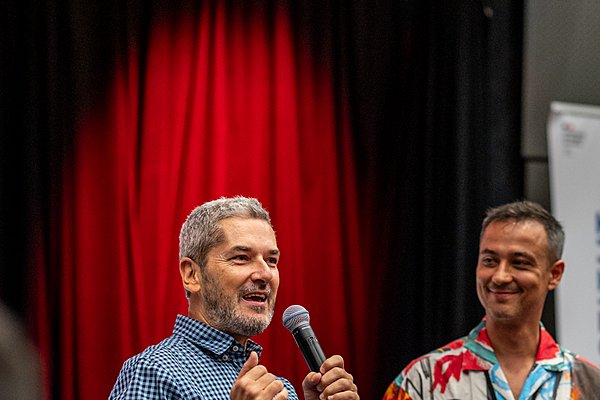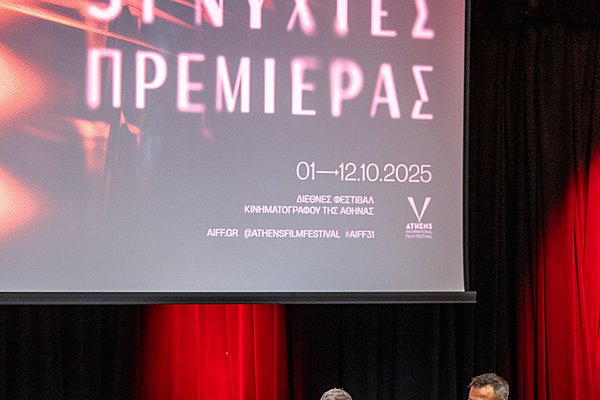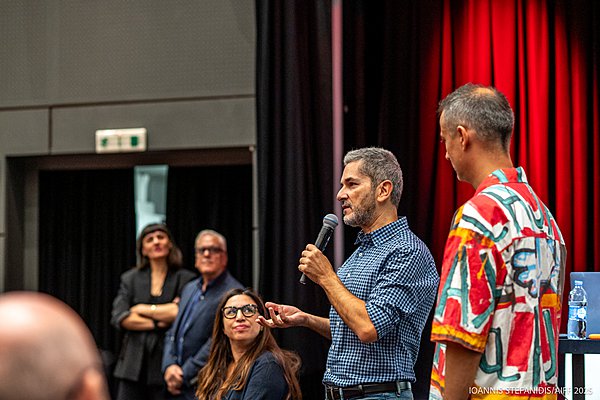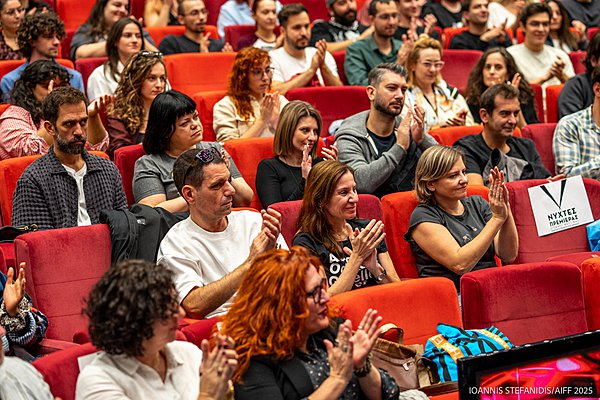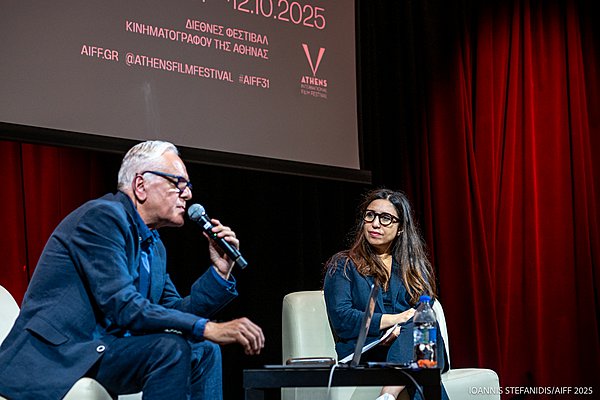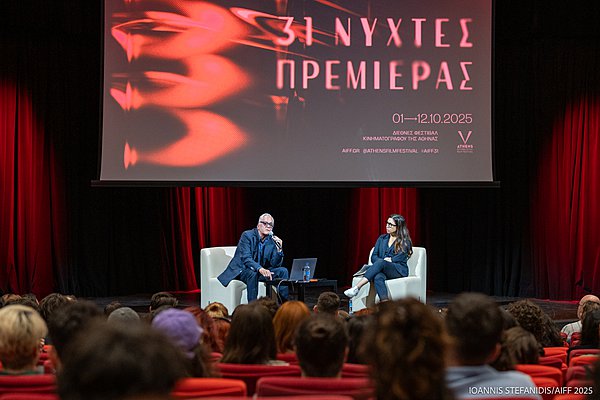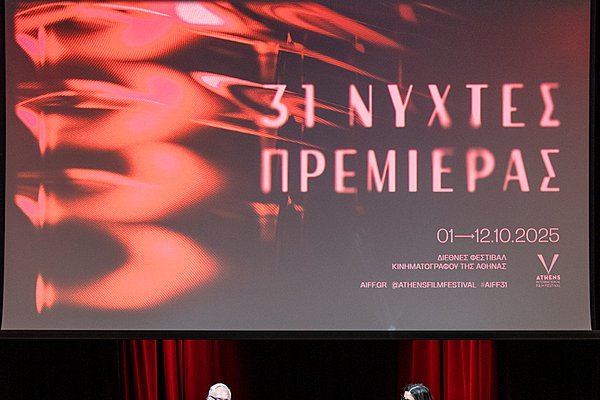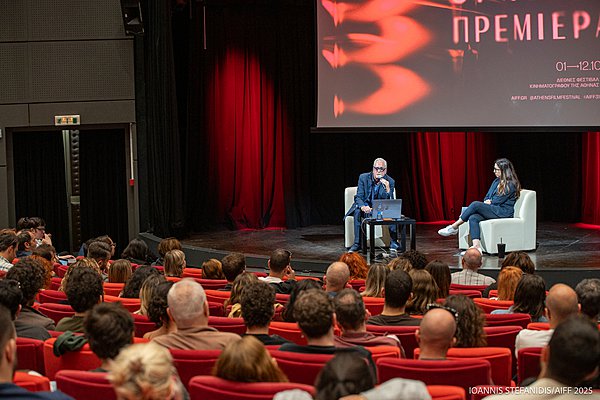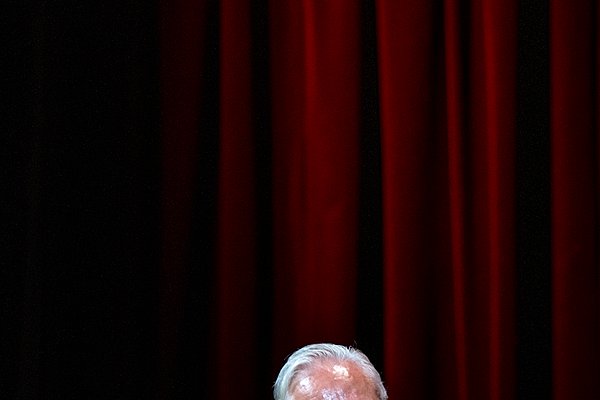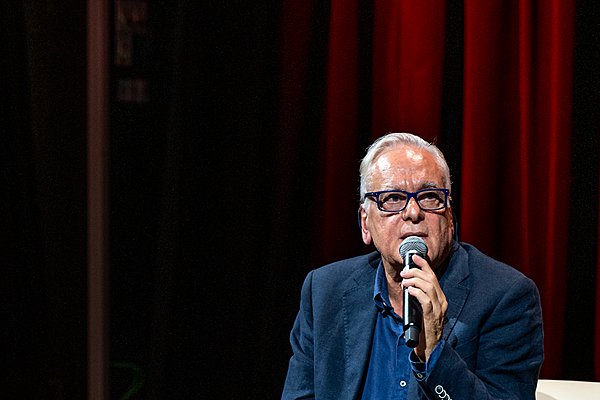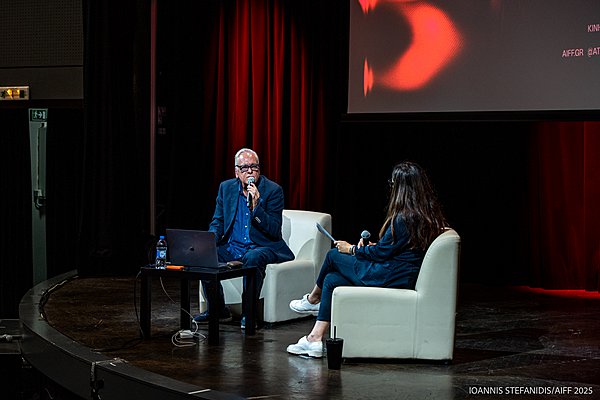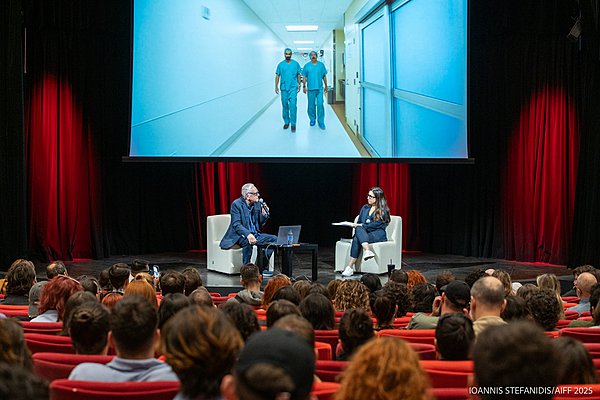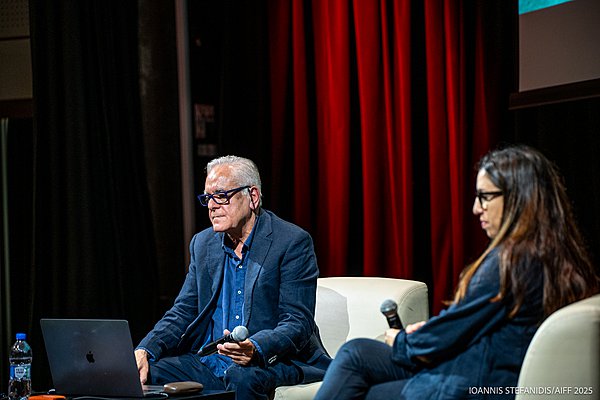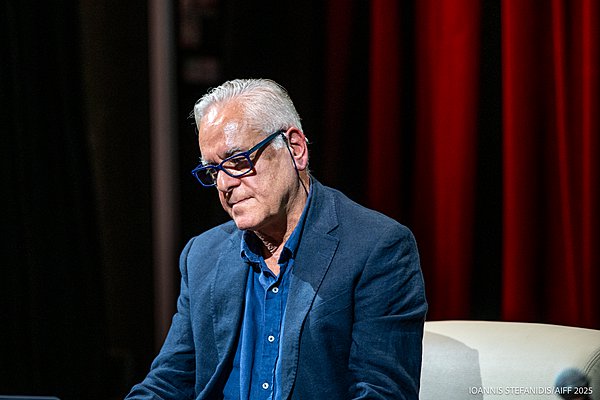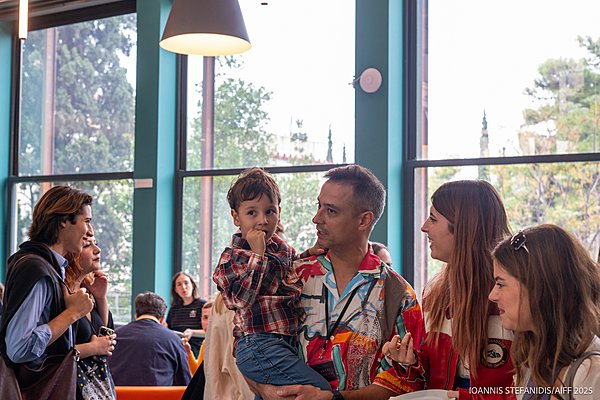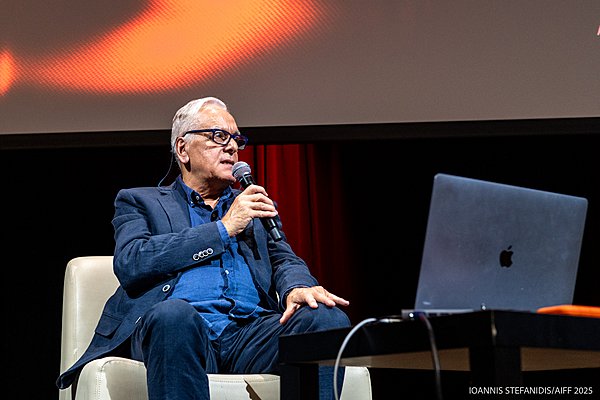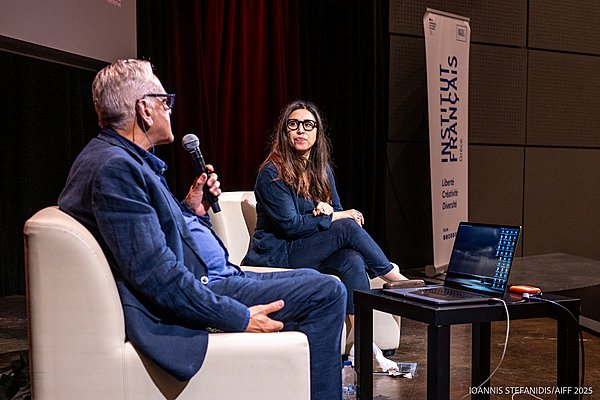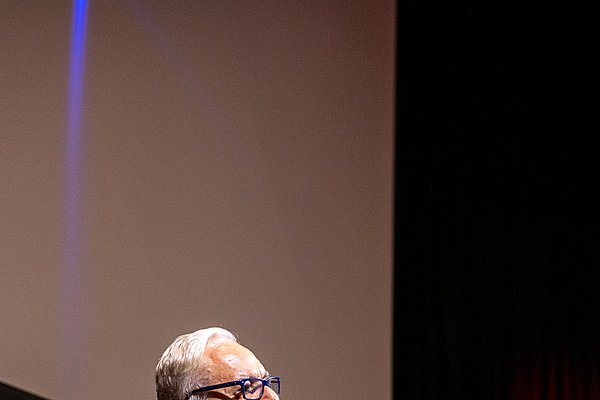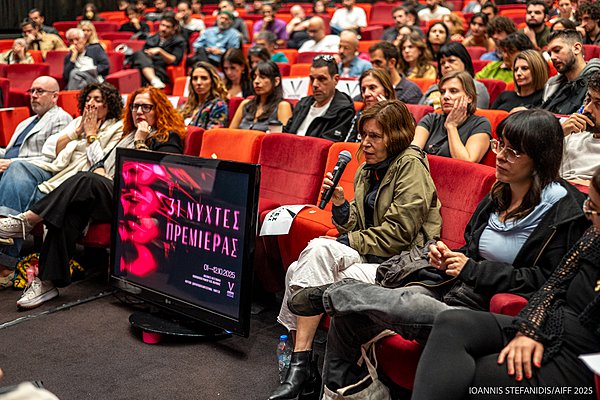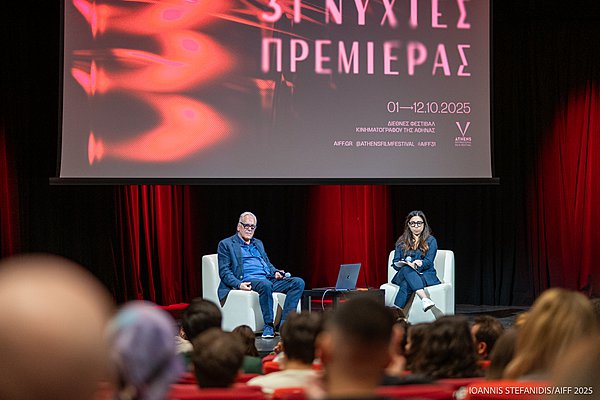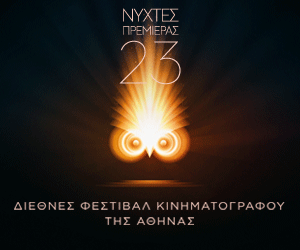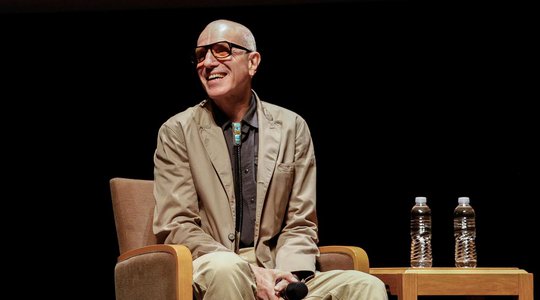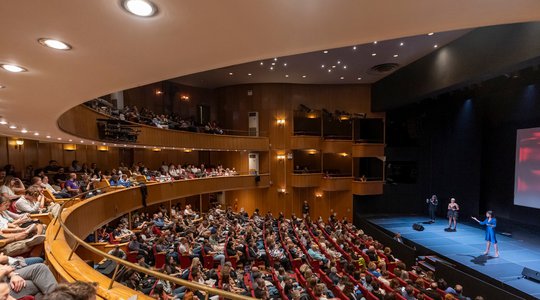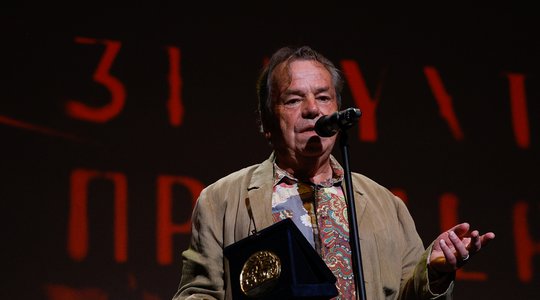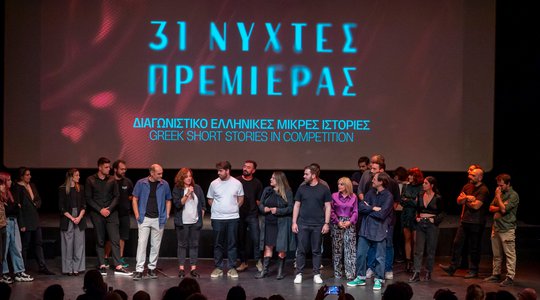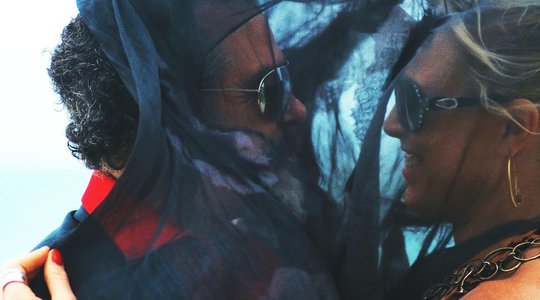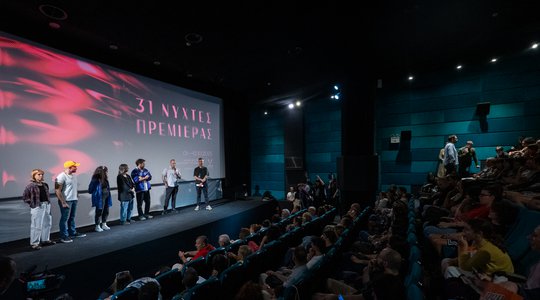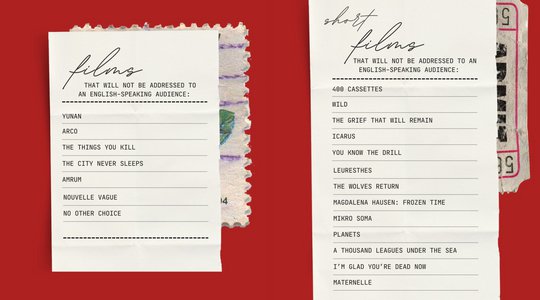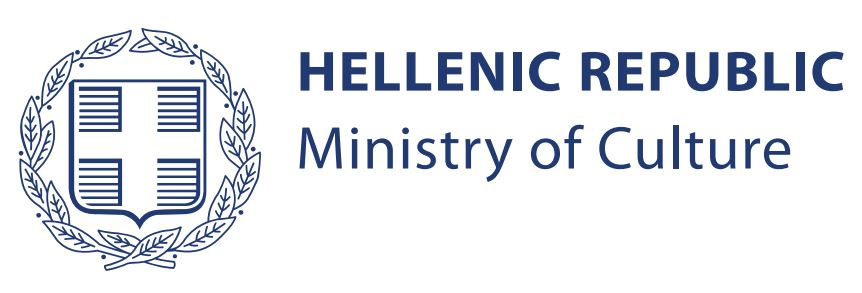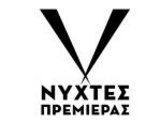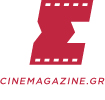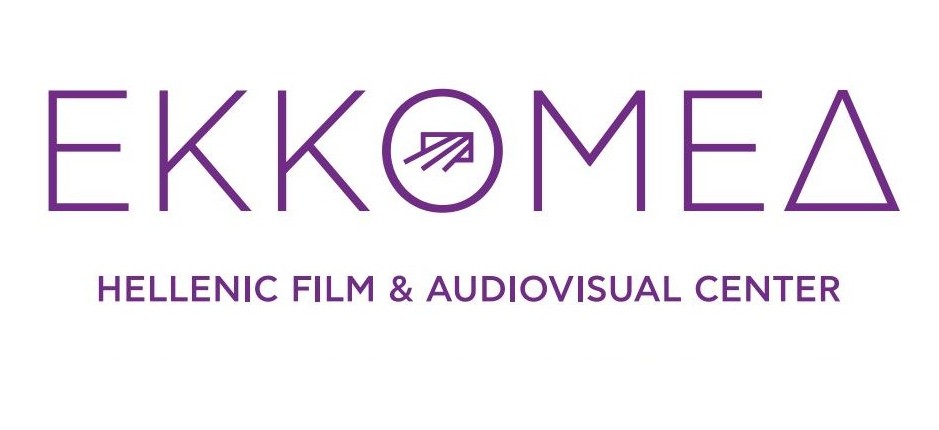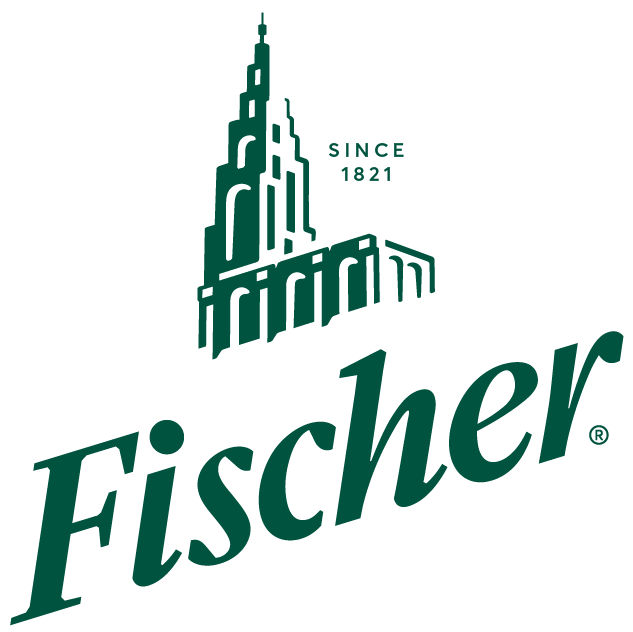Masterclass: "The Invisible Art of Editing" by the great Yorgos Mavropsaridis
On Saturday, October 4, the 31st AIFF and the Creative Europe MEDIA Desk of the Hellenic Film and Audiovisual Center, as part of the popular and beloved GREEK SHORT STORIES Competition Section, shared the pleasure of inviting a Masterclass by the internationally acclaimed and Academy Award nominee, Yorgos Mavropsaridis (ACE, BFE, GFE), titled “The Invisible Art of Editing”.
Panos Gkenas, the head of the Greek Short Stories Competition Section, welcomed the audience in the packed amphitheater. After thanking the co-organizers and supporters of the event, he emphasized the educational dimension of the Festival, pointing out the constant presence of similar events in past editions, and invited on stage the Artistic Director of the Festival, Mr. Loukas Katsikas. In a short speech of honor and emotion, the artistic director welcomed the great Yorgos Mavropsaridis and presented a brief overview of his artistic work, from his acting cameos in films such as Loufa kai Parallagi by Nikos Perakis or The City Never Sleeps by Andreas Tsilifonis - which will screen twice in a special 4K digital restoration next Saturday, as part of this year's AIFF—to his collaborations with Yorgos Lanthimos and his work alongside foreign directors such as Alejandro Landes in the film MONOS.
ΤHE MASTERCLASS
Next on stage came Ms. Athena Xenidou of the Ray Talents Agency to coordinate the Masterclass and Mr. Yorgos Mavropsaridis, who was greeted with enthusiasm by the packed audience. The discussion began with the speaker drawing parallels between editing and neurology, a field of particular importance to him. After a brief historical overview on the origins of the art of editing, he defined it as the intersection of science and art. “Editing”, he said, “is based on brain processes that organize narrative chaos and attribute meaning to it”. Using Will Storr’s “The Science of Storytelling” as a point of reference, Mr. Mavropsaridis considered the brain’s function similar to the work of the editor: a series of choices and connections of stimuli in order to create meaning with viewers as active participants.
THE COLLABORATION WITH YORGOS LANTHIMOSΣΥΝΕΡΓΑΣΙΑ ΜΕ ΤΟΝ ΓΙΩΡΓΟ ΛΑΝΘΙΜΟ
Later on, discussion turned to Mr. Yorgos Lanthimos. From the first commercials to the Oscar nominations, he became a director continuously experimenting seeking his own personal language. Mr. Mavropsaridis referred to the times of KINETTA and DOGTOOTH specifically mentioning the ease by which he and Lanthimos communicated, the independence demanded by the editor and the importance of structure which can be altered through editing. The opening sequence of DOGTOOTH served as a remarkable example, a scene that in the script was located in the middle of the film but later placed at the beginning, introducing perfectly characters and theme. Simultaneously it served as a rule-breaker extending the usual 10-minute opening canon to 20 minutes! The educated Cannes audience at the time welcomed appreciatively the film’s rhythm, acknowledging its importance in the construction of Lanthimos’ worldbuilding, despite the Greek audience’s awkwardness towards the film back then. This prompted him to remind once more the importance of recognizing the dynamic bond between the cinematic art and the spectator, while he spoke for the necessity of education not only for the professionals but also for the audience.
EDITING AS LANGUAGE
“Editing a narrative suggests a way of understanding it. Each member of the audience fills the gaps and draws its own conclusions”, Mr. Mavropsaridis pointed. The discussion extended to the roles of music and sound, their relation to editing and the use of parallel editing as means of creating tension. He also noticed the theatrical and ancient Greek influences on Lanthimos’ work, as well as the importance of recognizing instances when editing should be avoided, as in the astonishing Dogtooth sequence of Angeliki Papoulia.
DISCUSSION WITH THE AUDIENCE
After a short break a Q&A followed with the devoted and enthusiastic audience. Mr. Mavropsaridis spoke with admiration for the film Monster by Hirokazu Kore-eda, while he was reminded of Andrei Tarkovsky with regard to being reliant to the material. He referred with emotional warmth and deep respect to the influence of Alexis Damianos in his philosophy of work and the balance in life as a whole, he spoke of the limits in the editor’s work, the French Nouvelle Vague, the literary adaptations demand and “transcendence” as a motive for creativity.
ABOUT ARTIFICIAL INTELLIGENCE
About A.I. Mr. Mavropsaridis joked that he is old enough to narrowly “escape” it. However, if he was younger, he claimed he would adapt to the new demands and that every age has its own challenges.
The precious event was attended, among others, by the director, and Mr. Yorgos Mavropsaridis’ close friend, Eva Stefani, the directors Stavros Psillakis and Eva Nathena, actor Sofia Kokkali, film professionals, journalists, students and film enthusiasts. Everyone enjoyed the charismatic, subtle presence of the great Yorgos Mavropsaridis.
We wish to thank warmly the French Institute of Greece for the Auditorium Theo Angelopoulos.


